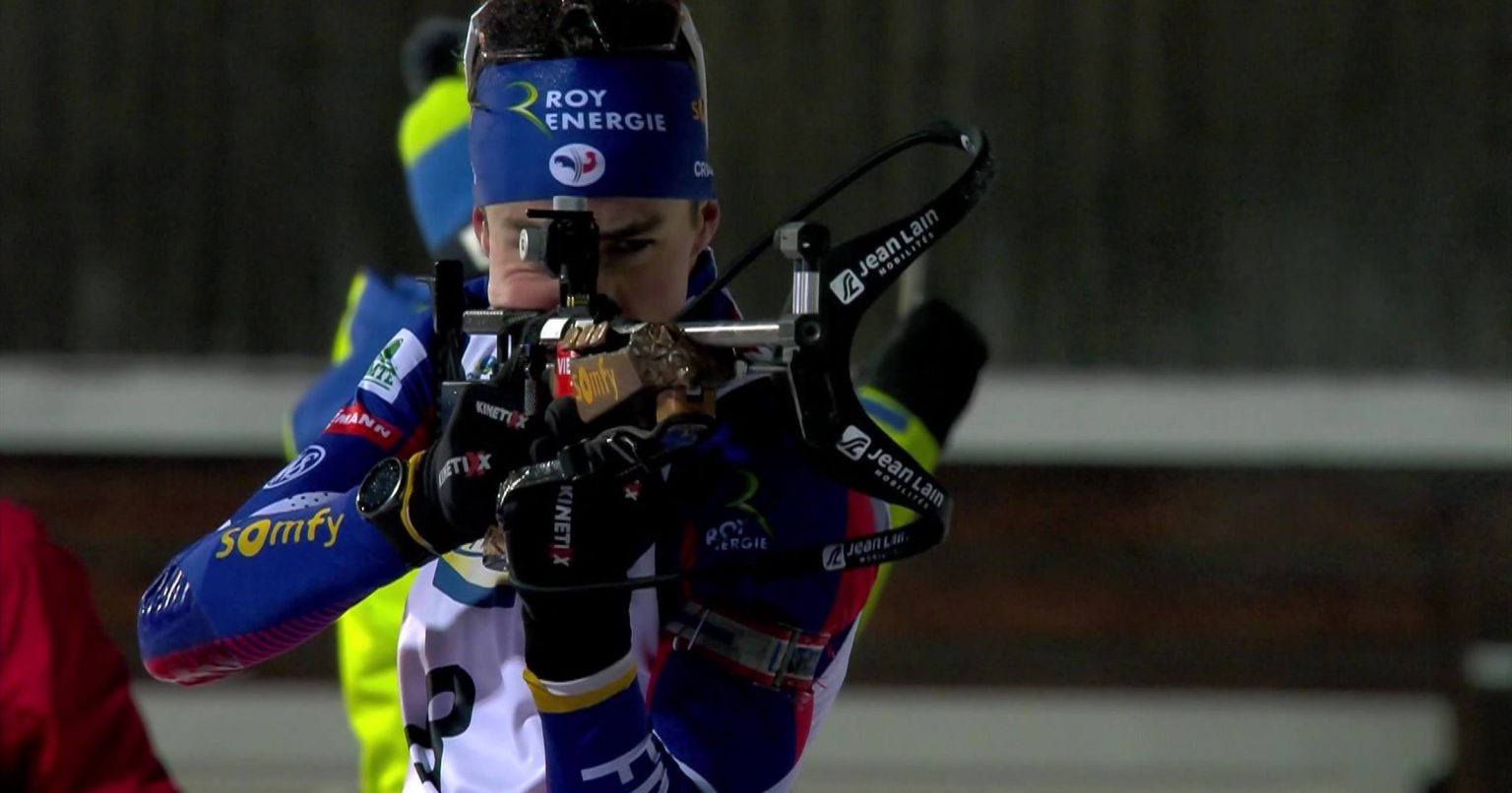The French biathlete, Eric Perrot, delivered a masterclass performance in the men’s 15km mass start race at Kontiolahti, Finland, securing his first-ever World Cup victory in dominant fashion. Perrot, displaying exceptional composure and precision on the skis and at the shooting range, controlled the race from the midway point, leaving seasoned veterans like Quentin Fillon Maillet and Sturla Holm Laegreid trailing in his wake. His victory was a testament to his burgeoning talent and meticulous preparation, marking a significant milestone in his career and signaling his arrival as a force to be reckoned with on the biathlon circuit. The demanding Kontiolahti course, known for its challenging terrain and unpredictable weather conditions, proved no obstacle for Perrot, who navigated the track with apparent ease and maintained a laser focus throughout the grueling competition.
Perrot’s triumph was built on the foundation of near-flawless shooting. In a sport where every missed shot translates into a penalty loop, adding precious seconds to an athlete’s time, Perrot’s accuracy was paramount. He demonstrated remarkable composure under pressure, hitting 19 out of 20 targets, a feat of marksmanship that set him apart from the chasing pack. This precision, combined with his powerful skiing, allowed him to build a comfortable lead and effectively neutralize any potential threats from his rivals. While other competitors struggled with the windy conditions and the pressure of the high-stakes competition, Perrot remained unflappable, exhibiting a level of mental fortitude that belied his relative inexperience on the World Cup stage. His unwavering focus allowed him to execute his race strategy to perfection, ultimately culminating in a well-deserved victory.
The race for second place was a closely fought battle between two established biathlon powerhouses, Quentin Fillon Maillet of France and Sturla Holm Laegreid of Norway. Fillon Maillet, a multiple Olympic and World Championship medalist, showcased his resilience and experience, fighting his way back into contention after a slow start. Despite incurring two penalty loops, he managed to claw back time on the skis, demonstrating his exceptional physical prowess. Laegreid, known for his rapid-fire shooting and powerful skiing, also faced setbacks with missed targets but maintained a strong pace throughout the race. The two rivals pushed each other to the limit, engaging in a thrilling duel in the final stages of the competition. Ultimately, Fillon Maillet’s experience and determined pursuit edged out Laegreid, securing him the silver medal.
Laegreid, despite missing out on the second spot, secured a respectable third-place finish, adding another podium placement to his already impressive resume. His performance, while not quite reaching the heights of his previous victories, underscored his consistency and his ability to compete at the highest level. He, like Fillon Maillet, encountered challenges at the shooting range but showcased his strength on the skis, maintaining a strong pace and fighting for every position. The Norwegian’s bronze medal solidified his position as one of the top contenders in the sport and demonstrated his resilience in the face of adversity. His performance at Kontiolahti, while not a victory, was a testament to his talent and a clear indication that he remains a force to be reckoned with in the biathlon world.
Perrot’s victory, however, was the undeniable highlight of the day. His performance was a revelation, showcasing his potential to become a dominant force in the sport. His ability to combine near-perfect shooting with powerful skiing is a rare and valuable combination, one that suggests a bright future ahead. The victory in Kontiolahti was not just a win; it was a statement of intent, a clear signal to the established elite that a new challenger has arrived. Perrot’s triumph undoubtedly injected a fresh wave of excitement into the biathlon world, raising anticipation for future competitions and the prospect of witnessing his continued development.
The Kontiolahti mass start race provided a captivating spectacle of athleticism, precision, and strategic maneuvering. The challenging conditions and the high stakes of World Cup competition pushed the athletes to their limits, revealing their strengths, weaknesses, and unwavering determination. Perrot’s breakthrough victory, Fillon Maillet’s resilient pursuit of silver, and Laegreid’s hard-fought bronze medal all contributed to a compelling narrative, showcasing the dynamism and unpredictability of biathlon racing. The competition served as a reminder of the demanding nature of the sport, requiring not only physical prowess but also mental fortitude, meticulous preparation, and the ability to perform under immense pressure. The race in Kontiolahti provided a thrilling glimpse into the future of biathlon, with Eric Perrot emerging as a rising star and signaling the potential for a shift in the established hierarchy of the sport.


